The most expensive appliances to run – energy expert reveals 4 gadgets guilty of increasing energy bills
Your most-used household appliances might not be as energy-efficient as you think, luckily there's a way to change that
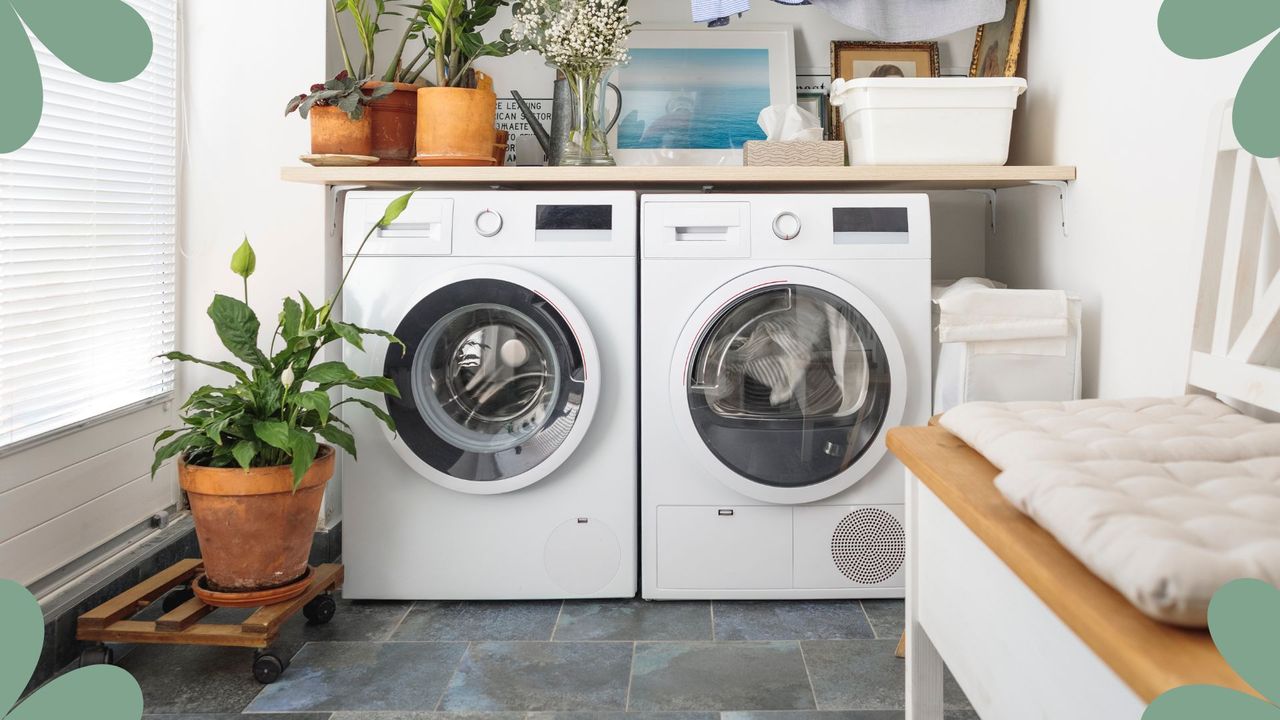

Rising energy costs are inevitable, especially in the colder months, and unfortunately, our most loved appliances can often increase electricity bills more significantly than we think.
If you're aware of all the expert tips for saving energy in your home then you may be aware of just how expensive running household appliances can get. From keeping your home warm for less to knowing how to dry clothes indoors properly it can feel impossible not to rack up the energy bill.
With this in mind, we spoke to an energy expert to reveal the most expensive appliances to run and explore what you can do to make these costly culprits more efficient to save money.
The 4 most expensive appliances to run: expert advice
Even when you've created an energy-efficient healthy home, there are still times in the year when the prices sky-rocket and you're left with a rather terrifying bill. However, knowing which appliances are the worst electricity offenders can help you be more mindful about their maintenance and usage.
Chris Madikian, an electrical expert at The Local Electrician says, "By making small adjustments like washing clothes in cold water or adjusting fridge temperatures, homeowners can not only lower their bills but also reduce their environmental impact. It’s all about making smarter choices with the devices we rely on every day."
1. Washer dryer
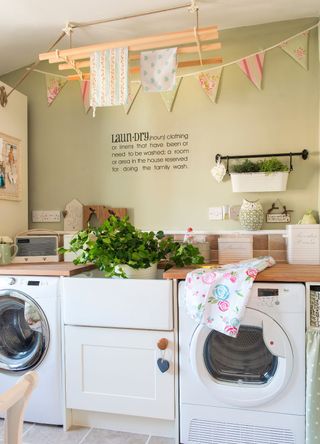
Using your washer dryer is an all-year-round occurrence with each season bringing its own set of challenging stains and weather conditions to battle with.
"These appliances account for approximately 12% of a typical energy bill, making them among the most energy-hungry in any household. The high usage of water and electricity required to heat it, combined with lengthy cycles, makes these appliances expensive to operate," explains Chris.
Sign up for the woman&home newsletter
Sign up to our free daily email for the latest royal and entertainment news, interesting opinion, expert advice on styling and beauty trends, and no-nonsense guides to the health and wellness questions you want answered.
Aside from knowing how to clean your washing machine properly so it's working at its best, Chris also recommends opting for cold-water washes, running full loads and using the best-heated airers to dry clothes. This will help cut down on energy consumption when you're tackling the weekly washing.
- 425 kWh/year = £104.13 per year
2. Tumble dryer
It's no secret that tumble dryers aren't exactly the cheapest thing to run however when the sun hides away during the winter there's often not much choice.
Chris says, "Essential for colder months, tumble dryers contribute around 11% to the typical energy bill due to the power required to dry clothes effectively."
Aside from tumble dryers, dehumidifiers can help dry clothes when you purchase the right model. Paired with a heated airer they should be able to dry a load of washing in impressive timing with a fraction of the energy usage.
Several products on the market can help your dryer be more efficient by speeding up the overall drying process.
- 388 kWh/year = £95.06 per year
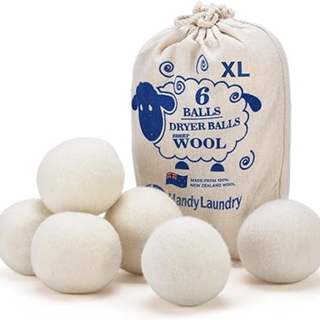
RRP: £10.99 | These wool balls are from Amazon and are made of New Zealand premium wool and come highly recommended. They're also a great alternative for drying sheets and will help separate your clothes in the dryer.
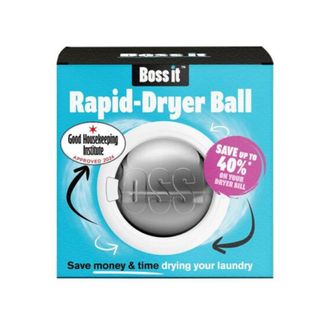
RRP: £7.99 | This beloved product slashes the drying time and cost when used in your tumble dryer. It's also completely reusable so you won't need to worry about having to replace it after so many uses.

RRP: £7.99 | Whilst these certainly won't help decrease your drying time, they will help keep your clothes smelling fresh. They can also help with static in your tumble dryer and add even more softness.
3. Fridge freezer
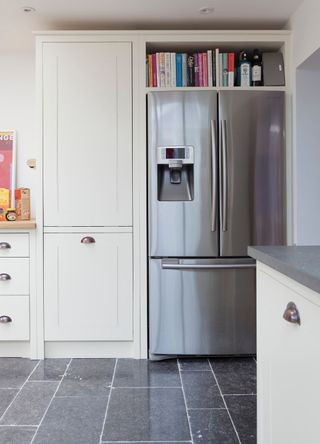
From knowing how to clean a fridge to keeping it at the right expert-recommended temperature, there are a few ways to improve your fridge freezer's efficiency.
"The fridge-freezer is another staple appliance that can cause energy bills to spike, especially if not maintained properly, and makes up 8% of the household energy bill."
He says that by keeping the fridge at 4°C and avoiding frequent door opening you'll be able to maintain efficient operation.
- 302 kWh/year = £73.99 per year
4. Chest freezer
When it comes to freezers in particular they can be a little more high maintenance than you'd expect, especially when it comes to how often you should defrost your freezer. However, keeping on top of this can make all the difference.
Chris points out, "A chest freezer operates continuously and uses a significant amount of energy to maintain a steady temperature, accounting for 8% of an average household’s energy expenditure."
He adds that you should regularly defrost your freezer, make sure all door seals are intact and maintain a temperature of -18°C for maximum efficiency.
- 304 kWh/year = £74.48 per year
Aside from making energy-efficient swaps this season, the new year is also a good time to bring positive energy into your home. You can do this in various ways but we'd recommend starting with decluttering negative things to create a happy home in 2025.

Emily joined woman&home as a staff writer after finishing her MA in Magazine Journalism from City University in 2023. After writing various health and news content, she now specialises in lifestyle, covering unique cleaning hacks, gardening how-tos, and everything to help your houseplants thrive.
-
 Sienna Miller relies on this cult classic treatment to banish dry, chapped lips
Sienna Miller relies on this cult classic treatment to banish dry, chapped lipsThis fan-favourite buy is the answer to a soft, hydrated pout all winter long
By Sennen Prickett Published
-
 I never expected Le Creuset to step out of the kitchen - their new launch is full of sustainable surprises
I never expected Le Creuset to step out of the kitchen - their new launch is full of sustainable surprisesThe new Le Creuset On The Go Collection covers lunch boxes through to food flasks: a colourful, sustainable, and stylish solution to food on the go
By Laura Honey Published
-
 Laundry expert reveals the unlikely 54p solution for stubborn stains and mould build-up
Laundry expert reveals the unlikely 54p solution for stubborn stains and mould build-upWho would have thought the key to fresh, bacteria-free laundry is hiding in your medicine cabinet?
By Emily Smith Published
-
 Habitat's latest collection offers timeless Sanderson designs at affordable prices – with a charming charitable twist
Habitat's latest collection offers timeless Sanderson designs at affordable prices – with a charming charitable twistCombining Sanderson's expertise in patterns and the inspiration of Britain's best National Trust landscapes this is an exquisite collaboration
By Emily Smith Published
-
 How to cut Monstera aerial roots without causing damage, according to horticulture experts
How to cut Monstera aerial roots without causing damage, according to horticulture expertsEver wondered how to tackle those spidery roots that emerge from your monstera plant? We put it to the experts to share their methods
By Emily Smith Published
-
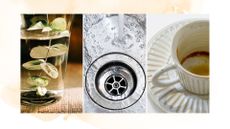 8 surprising things you can clean with denture tablets: from toilets to tea-stained mugs
8 surprising things you can clean with denture tablets: from toilets to tea-stained mugsCleaning experts have revealed the inventive ways you can use denture tablets to clean your home for dazzling results
By Emily Smith Published
-
 These simple styling tricks can help sell your home quicker, according to a property director
These simple styling tricks can help sell your home quicker, according to a property directorSelling your home quicker can be as easy as making sure you're displaying these common household items
By Emily Smith Published
-
 Jamie Oliver's genius air fryer tray hack doubles cooking space – in even the smallest models
Jamie Oliver's genius air fryer tray hack doubles cooking space – in even the smallest modelsThe celebrity chef is changing the air fryer game with this one simple tray trick to optimise cooking space
By Emily Smith Published
-
 How to propagate a fiddle leaf fig: expert tips on achieving a successful cutting to grow free plants
How to propagate a fiddle leaf fig: expert tips on achieving a successful cutting to grow free plantsIf you're up for the challenge then propagating a fiddle leaf fig is a rewarding task that can double your houseplant collection
By Emily Smith Published
-
 This denture tablet hack keeps cut flowers fresh for longer – perfect timing for Valentine's Day
This denture tablet hack keeps cut flowers fresh for longer – perfect timing for Valentine's DayWho would have thought denture tablets could be the key to a long-lasting bouquet?
By Emily Smith Published